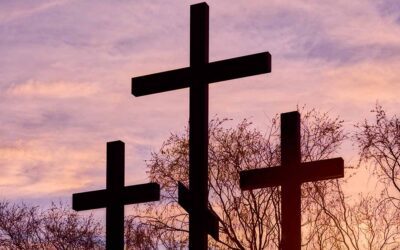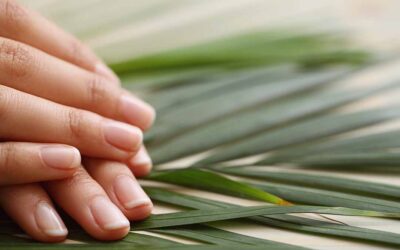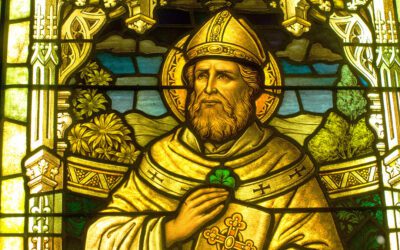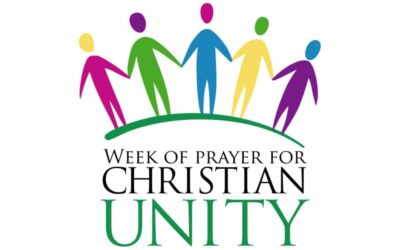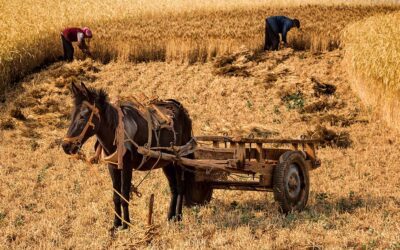
Romans 11: 1-2a, 29-32
Matthew 15: 21 – 28
This has to be one of the most puzzling stories in the Gospels. At first glance, you would be forgiven for feeling that Jesus is being both rude and misogynistic, possibly even racist – “I was sent only to the lost sheep of Israel” – calling a woman in desperate need a ‘dog’.
But that’s not the Jesus I know, the Jesus who is at ease with sinners, occupying troops, lepers and even women, sharing meals and healing them despite the ‘religious’ rules forbidding Him to do so.
So we have to delve a bit further into the significance of what is happening – and when we do, there seem to be two possible interpretations, both of which demand that the passage is contextualised by an awareness of its background.
One possibility is that throughout the Gospels, Jesus is continuously learning about the breadth of His mission. The woman challenges Him to consider whether His ministry is exclusive – for the Jews only – or universal – even to the ‘dogs’, if they accept Him and place their trust in Him. “Great is your faith – let it be as you wish”. Remember that this event takes place before the Transfiguration, when God proclaims Jesus as the Son in who He is well pleased, to be followed by the journey to Jerusalem which results in the fulfilment of Jesus destiny. Everything that has gone before incrementally prepares Him for the cross.
The other explanation is that Jesus knows exactly what He is doing. In front of the Pharisees and scribes, who have taken great offence at Jesus’ teaching (Matthew 15:12) Jesus offers a practical demonstration that, though God has chosen salvation to come from Israel, it is not just for Israel, but the whole of creation. The Messiah they want would reject the dogs (the Gentiles, the unclean, the women). That’s not what they get.
There are arguments for either interpretation. Food for thought.
But whichever, there is no argument that the woman is healed. As are we all, whoever we may be – Jew, Greek, slave, free, man, woman. One in Jesus, the Christ. That’s the important bit.
Previous Posts
Praying Together 31st March 2024 Easter Day
“I have seen the Lord”. It is difficult to imagine her emotions. She has seen the Lord! She doesn’t yet understand fully – but her eyes have seen Him. Her life is changed for ever, and she doesn’t care who knows it.
Praying Together 24th March 2024
But Jesus is aware of what He will have to endure in order to fulfil His mission of salvation – and He sets the necessary elements in motion.
Praying Together 17th March 2024
The Anglican Church of Ireland has produced an excellent example of the way in which St Patrick’s life embodies the Five marks of Mission – a real cause for celebration and a model for us to follow (And by the way, St. Patrick’s flag colour is blue, not green.)
Praying Together 10th March 2024
It’s a day of being aware of, and thankful for, the caring and loving relationships that exist within family and friends.
Praying Together 3rd March 2024
And what of our anger? Is it based on injury to self? Injury to others? Or injury to love, to forgive, to serve? Can we defend it at the foot of the Kingly throne?
Praying Together 25th February 2024
‘Which am I – the chicken or the pig? Jesus makes it clear that in following Him, there is no half-way house – our values are either of the material world, or of the Kingdom.
Praying Together 18th February 2024
The world is in flames. Are you impelled to put them out? Look at the cross. From the open heart gushes the blood of the Saviour. This extinguishes the flames of hell. Make your heart free by the faithful fulfilment of your vows;
Praying Together 11th February 2024
It’s the same for us – we cannot build our faith on just one or two aspects of Jesus’ story. The fundamental truth we need to accept that He is risen from the dead and He is Lord, alive.
Praying Together 4th February 2024
He asks for no reward, save that of loving His creation, His Father and our neighbours (all of them) as He loves – do we even do that?
Praying together 28th January 2024
So, says Paul, eat or don’t eat. Stop making a fuss over things that don’t matter, and get on with loving your neighbour.
Praying Together 21st January 2024
as we celebrate this week of Christian Unity, let us consider what service we could offer together, that we wouldn’t be capable of achieving on our own – the whole being much greater than the parts.
Praying Together January 14th 2024
Plough Sunday has its roots in medieval times, when the parish church was often used to store a communal plough in the winter months, then being decorated and blessed before the rhythm of the agricultural season begins once more on Plough Monday
